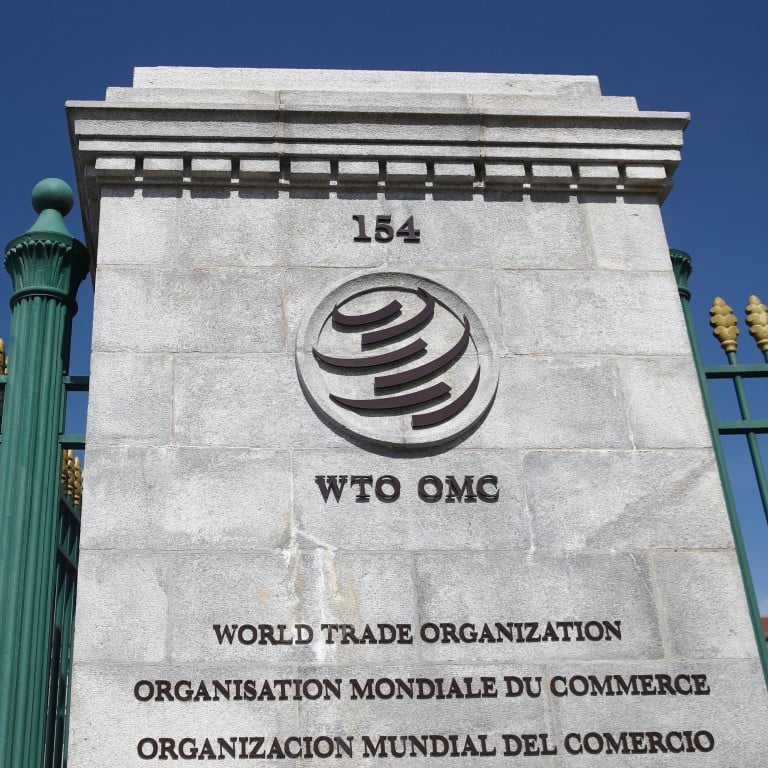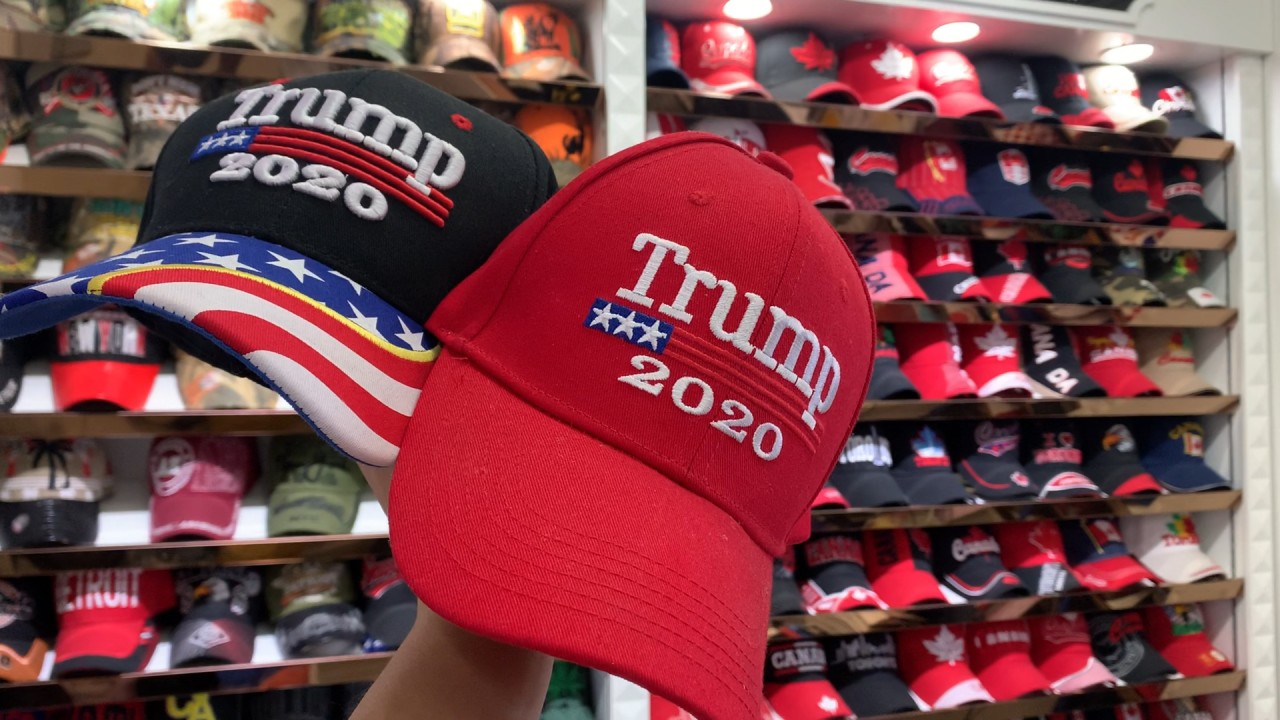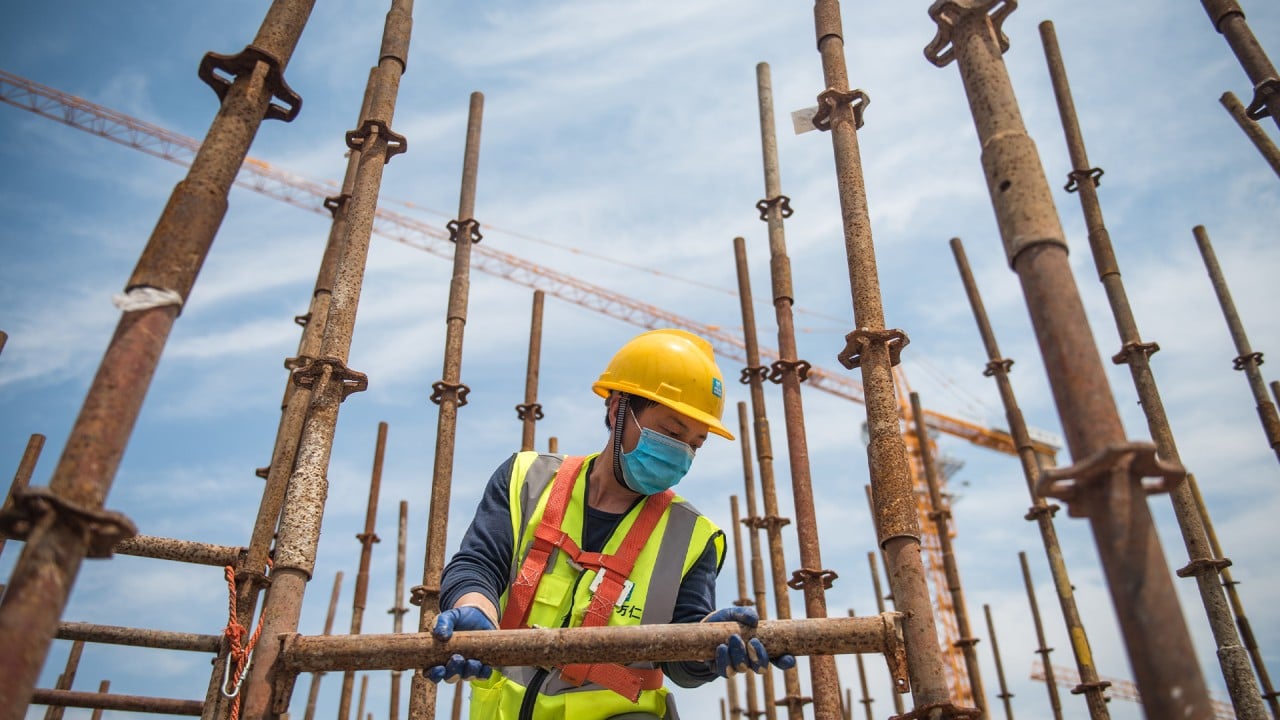
US-China trade war casts long shadow over WTO leadership race
- Interviews with the five remaining candidates for the World Trade Organisation’s (WTO) top job reveal reluctance to speak in depth on the biggest issue in global trade
- Most talk of creating an environment for US-China to solve their issues at the WTO, but the tense geopolitical situation is stifling debate
As the race for leadership of the World Trade Organisation (WTO) moves into its second phase, candidates are walking on eggshells, with the US-China trade war casting a long shadow over the highly-politicised proceedings.
The five remaining nominees have survived a “gruelling” confessional period, in which they were interviewed by representatives of the trade body’s 164 members, with each attempting not to alienate any of the powerful triumvirate of China, the European Union and the United States.
All five candidates also gave interviews to the South China Morning Post, which revealed varying degrees of reluctance to engage in substantive conversations on the fraught geopolitical situation facing global trade, but particularly the US-China rivalry.
According to analysts, it would be difficult for a candidate to become director general if any of the major powers came out against the candidacy, which helps explain why there is less than a cigarette paper’s width between many of their public positions on controversial issues.

02:39
The ‘Yiwu Index’: How a Chinese city could predict the result of the US Presidential election
These include China’s subsidies to state-owned industrial firms and its continued developing-country status at the Geneva body – major grievances not just for the US, but also the EU and Japan.
In recognition of the political minefield they are facing, one of the eight original candidates remarked privately they could either say what they wanted and get culled, or withhold their opinions and hope to keep everyone happy. “It’s boring for the press, but what can candidates do?”
Another complained the race has been “too politicised” and rather than being an in-depth examination of the issues blocking the WTO’s negotiating and dispute settlement functions, it has been “a contest on geography and background”.
Debate surrounding the contest has become one of geopolitical calculus: which candidate’s situation offends the fewest of the major members.
China, the EU and the US have been careful not to publicly support any of the candidates, knowing that would torpedo their preferred choice.
It’s different [in this year’s race] I think, in that the candidates for the job are reluctant to somehow be perceived to be taking sides
“It’s different [in this year’s race] I think, in that the candidates for the job are reluctant to somehow be perceived to be taking sides,” said Tatiana Prazeres, senior fellow at the University of International Business and Economics in Beijing and former senior adviser at the WTO. “You want to be perceived as a neutral honest broker, someone who could help facilitate dialogue between members.”
Member states have pressed candidates for plans on how they would deal with the spiralling trade war, with the WTO having played only a bit part over the past few years.
“Everybody asks questions like you have been asking, this is what people are interested in: can you help the US and China come together?” said another of the candidates.
As for China, “they are basically asking questions to see to what extent you are just buttering the bread of Lighthizer, or what are your views on special differential treatment at the WTO,” the person added, referring to the US Trade Representative Robert Lighthizer – a staunch critic of the WTO and China’s status as a developing country at the organisation.
On the record, candidates have largely been tight-lipped in their views on how the WTO could handle the US-China dispute.
“You can only have mediation if countries want to have it, and I have been making the point that politicians, unlike technocrats, have a slightly different view of the world, because I think they understand that the solutions will be found partly in the substantive issues, partly in the timing and partly in the personalities,” Fox told the Post, adding that the superpowers will only turn to the WTO for support when they are serious about ending the trade war.
Why do trade wars end? Because the proponents find it too expensive to carry them on
“Why do trade wars end? Because the proponents find it too expensive to carry them on. So there will come a point where both sides, I think, will want to diminish the tension.”
“I have a really close working relationship with both countries,” Yoo said. “So far when I met with many members around the world, they also share the same view – that we need someone who can actually maintain, enhance and strengthen, and improve this global trading system.”
Likewise, both of the heavily-favoured African candidates were light on detail when asked about the role the WTO should take to defuse the greatest threat to the global trading system.
“I know from my own experience, of long years in trade, that we need to create an environment for the US and China to resolve the issues – issues like this have been resolved before,” Mohamed said in an interview at the end of July.
Her Nigerian rival Okonjo-Iweala was equally vague on her blueprint for US-China relations.
“I think this is an issue of trust between the members, between the bigger powers – US, China, or developed and developing countries,” said Okonjo-Iweala, a former Nigerian finance minister.
“And I think as long as you have that, you have this divide. So the question to ask is how did this happen? But more importantly, how can you rebuild the trust so you can begin to bridge the divide?”

05:02
Coronavirus backlash further fraying China’s ties to global economy
Saudi Arabia’s Mohammad Al-Tuwaijri was the surprise name to make the final five. While he lacks formal trade policy experience, the candidate told the Post his experience helping Saudi Arabia chair this year’s Group of 20 meetings and his long background in commercial banking, including at HSBC and JPMorgan, meant he was qualified to manage the fallout from what is being described as a new cold war.
“You need to really convey viewpoints between both, you need to measure success and progress and outcomes, you need to throw the bigger picture to both all the time and give scenarios to them,” Al-Tuwaijri said.
“And what is the aftermath of Covid? How does it impact US business, for example, which is very important to the United States. For China how does it impact their own growth, because again, they’re an exporting nation.”
The next steps in the process will whittle the five candidates down to two, and then one, with commentators managing expectations as to what the winning candidate can achieve in a complex geopolitical environment.

